Researchers
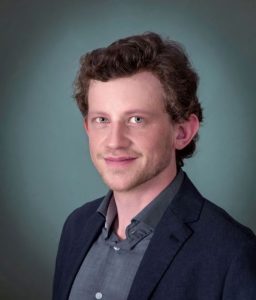
Björn Bonnet
Björn Bonnet is an Early Stage Researcher working at the at the Swedish University of Agricultural Sciences, Sweden.
Björn holds a Bachelor`s degree from the University of Tuebingen (Germany) in the fields of soil science and groundwater hydrology. He completed his degree within the DFG project “Sensitivity and response of the treeline ecotone in Rolwaling Himal, Nepal, to climate warming”, assessing the water household and availability within the soil throughout the year. He continued his education within the international double-degree Master program EnvEuro at the University of Copenhagen and the Swedish University of Agricultural Sciences focusing on the fields of Soil and Water Chemistry as well as Analytical Chemistry. In his final thesis he conducted a case study about the “Mass flow and fate of PFASs on a landfill in Uppsala, Sweden”. Since 2017 he has been working as a project manager in geotechnical and environmental engineering in Germany. He dealt with subsoil investigation in terms of road and building construction as well as pedological construction supervision. Besides, he worked on the identification and remediation of contaminants in buildings, soil and groundwater. During his professional career he completed several advanced trainings in sampling of both (contaminated) groundwater and solid compounds, soil management and is eligible coordinator for working in contaminated areas (DGUV Regel 101-004 6A and TRGS 524, VBG).
Björn is highly interested in approaching the novel field of infrastructure contaminated with PFASs. He is particularly interested in the development and testing of several methods at lab scale and the practical application at pilot scale level.
Project ESR12: Developing innovative treatment techniques for infrastructure decontamination of materials contaminated with PFASs
Host organization: Swedish University of Agricultural Sciences (SLU)
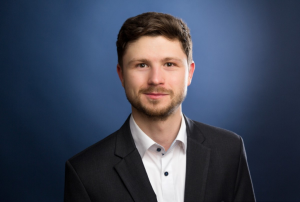
Lars Brunken
Lars Brunken is an Early Stage Researcher working at the Karolinska Institutet, Sweden.
Lars has a background in Life Science Engineering and completed his master’s degree in Toxicology at the University of Potsdam, Germany. In his research and thesis works, he focussed mainly on dermatological cell- and organ culture models in context of pathogenesis. In his master thesis he investigated the stem cell involvement in chemotherapy induced hair loss.
Lars has a high interest in becoming part of the development of next-generation toxicity assessments with the aim of strong increases in data reliability, reduction of cost and animal use.
He is concerned with risk assessments of persistent organic pollutants and their health effects following human exposure.
Project ESR10: Dose-response assessment of PFAS mixtures in relation to biomarkers of effects relevant for cardiovascular disease in humans
Host organization: Karolinska Institutet (KI)
Further information: ResearchGate, LinkedIn
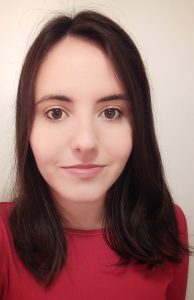
Lara Cioni
Lara Cioni is an Early Stage Researcher working at NILU – Norwegian Institute for Air Research, Norway.
Lara completed her bachelor’s and master’s degree in Chemistry at the University of Florence, Italy. Her master’s studies focused on the field of environmental and analytical chemistry. She carried out her master’s thesis research at NILU laboratories working on the development and evaluation of an active air sampling method for the determination of chlorinated paraffins. She is interested in the analysis of emerging organic pollutants to discover more about their environmental fate and human exposure pathways.
Project ESR8: PFAS and total organofluorine exposure over time and dietary predictors in two Norwegian cohorts
Host organization: Norwegian Institute for Air Research (NILU)
Further information: Website, LinkedIn

Ana Carolina Coelho
Ana Carolina Coelho is an Early Stage Researcher working at UiT – The Arctic University of Norway, Norway.
Ana Carolina has a background in Biomedicine and completed her master’s degree in Bioinformatics at the Federal University of Rio Grande do Norte, Brazil. During her undergraduate studies and her research, she mainly focused on omics approaches and data analyses. She carried out her master’s thesis developing an integrated tool for identifying neoantigens using using genomics and transcriptomics data. Ana Carolina is highly interested in omics data and the analysis of risk assessment of persistent organic pollutants in order to identify their potential adverse outcomes on gene expression and metabolomics following human exposure.
Project ESR9: The effects of legacy and replacement PFAS on gene expression and metabolome
Host organization: The Arctic University of Norway (UiT)

Joost Dalmijn
Joost Dalmijn is an Early Stage Researcher working at Stockholm University, Sweden.
I’ve completed my bachelor’s and master’s degree in Earth Science at the University of Amsterdam, the Netherlands. My master thesis focused on the biodegradation of several contaminants by activated sludge from different wastewater treatment plants. This research combined microbiological and analytical methods, such as OECD biodegradation testing, chemostats, GC-FID and LC-MS/MS. After graduating I worked on a project investigating the removal of PFAS from AFFF-contaminated firefighting wastewater and groundwater.
I am interested in the sampling, detection and quantification of legacy and novel PFAS in various environmental compartments in order to elucidate their sources, fate and transport.
Project ESR3: Release of known and unknown PFASs to the atmosphere and resulting human exposure
Host organization: Stockholm University (SU)
Further information: Website
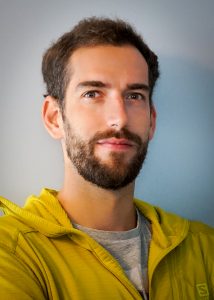
Michel Hubert
Michel Hubert is an Early Stage Researcher working at the Norwegian Geotechnical Institute, Norway.
I completed my Bachelor and Master degree at the Technical University of Darmstadt, Germany, majoring in the topics of water hydraulics, groundwater modelling and hydrogeology in 2016. In 2011 to 2012 I studied at the University of Iceland focusing on the field of geochemistry and geophysics. In 2014 I contributed to international research by analyzing groundwater samples and modelling the spatial distribution and behavior of heavy metals and inorganic water compounds in a local aquifer at the Karunya Nagar University (Tamil Nadu, India). Since 2016 I have been working as a consulting engineer on different projects in the field of water resource management especially emphasizing on groundwater and transport modeling.
The challenges of modelling pollutant transport in the vadose zone due to the different physical and chemical processes makes it an interesting compartment for me to study. The understanding of the adsorption and desorption process, the chemical behavior in the subsurface and the fate of PFAs and PFOs are essential for developing mitigation measures.
Project ESR13: Advancing transport models and in situ remediation techniques for PFAS contamination in unsaturated soil
Host organization: Norwegian Geotechnical Institute (NGI)
Further information: LinkedIn

Silvia Hupcejová Dudášová
Silvia Hupcejová Dudášová is an Early Stage Researcher working at the Helmholtz Center for Environmental Research – UFZ, Germany.
My academic career started in 2014 at the University of Aberdeen, Scotland, where I completed my Bachelor’s degree in Oil and Gas Chemistry. My honours research project entitled “Behaviour of wax crystal modifiers based on β- cyclodextrin in waxy oils” was a trigger to pursue my career as a scientist and contribute to the research with my multidisciplinary educational knowledge. During my Master degree at the University of Aberdeen I specialised in Analytical Chemistry where I mainly focused on data mining and statistical comparison also known as “Chemometrics” which subsequently shaped my further academic interest which I would like to pursue in the PERFORCE3 project to identify emerging and novel PFASs in humans and in human exposure media.
Host organization: Helmholtz Center for Environmental Research (UFZ)
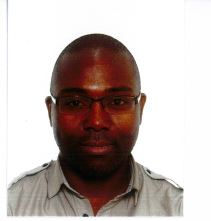
Lackson Kashobwe
Lackson Kashobwe is an Early Stage Researcher working at the Vrije Universiteit Amsterdam (VU), The Netherlands.
Lackson Kashobwe is a versatile and graduate student with a wide-ranging background in pharmacy, environmental science, toxicology, and molecular sciences. During his BSc studies, Lackson Kashobwe did an internship at Hokkaido University, Japan, researched the fate of antibiotics in human excreta, and graduated with a bachelor’s degree in environmental engineering at Tampere University of Applied Sciences, Finland. He completed the Master’s degree in General toxicology and environmental health risk assessment at the University of Eastern Finland. Also achieved a second master’s degree in biomedical technology specializing in molecular biology at Tampere University, Finland. The thesis works were based on microglia cells’ characterization in cerebral organoids and mapping different antibodies’ affinity to viral antigens. Additionally, he worked as an intern in the faculty of medicine and healthy technology at Tampere University, where he performed recombinant protein production, purification, and quality assessment.
Lackson Kashobwe is interested in understanding and uncovering molecular mechanisms underlying causes of toxicity in humans exposed to environmental compounds by using modern molecular tools. Therefore, the aims outlined in the PERFORCE3 project kindled his interest in studying the molecular mechanism involving PFs toxicity and, ultimately, contribute to the development of adverse outcome pathways (AOP).
Host organization: Vrije Universiteit Amsterdam (VU)
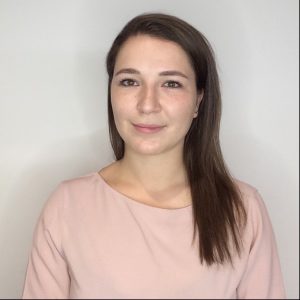
Melanie Lauria
Melanie Lauria is an Early Stage Researcher working at Stockholm University, Sweden.
Mélanie Lauria holds a bachelor’s and a master’s degree in Forensic Science from the University of Lausanne (UniL), Switzerland. During her master, she specialised in analytical techniques applied to forensic samples with a focus on chromatography and mass spectrometry. She carried out her master’s thesis as an exchange student at the University of Technology Sydney (UTS), Australia, where she was later employed as a research assistant in forensic chemistry to continue the project. Her thesis revolved around the development and validation of a presumptive colour test for rapid screening for the synthetic opioid fentanyl and its analogues. From 2019, she worked at the Australian Racing Forensic Laboratory, performing analysis of drugs in urine and plasma as well as GC-MS and LC-MS method development and validation.
Host organization: Stockholm University
Further information: LinkedIn, Twitter
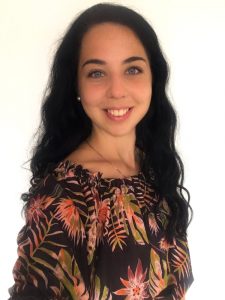
Viktória Licul-Kucera
Viktória Licul-Kucera is an Early Stage Researcher working at the Institute of Analytical Research at Hochschule Fresenius, Germany.
Viktória completed her Bachelor’s and Master’s degrees in Chemistry at Eötvös Loránd University, Budapest, Hungary. As a graduate student, Viktória was actively working in a research group on several national and international projects in the field of environmental chemistry and emerging micropollutants. Her research and thesis works focused on the determination of active pharmaceutical ingredients from various water matrices utilizing low-resolution and high-resolution mass spectrometric methods. Viktória is strongly interested in the research of contaminants with emerging concern, water chemistry, and novel mass spectrometric methods
Project ESR14: Synthesis and biodegradation of novel PFASs utilizing advanced mass spectrometric techniques combined with chemometric methods
Host organization: Hochschule Fresenius, University of Applied Sciences (HSF)
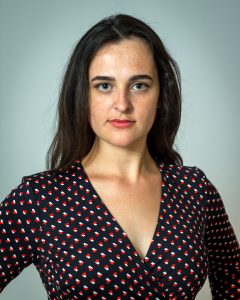
Rachel London
Rachel London is an Early Stage Researcher working at the ETH Zurich, Switzerland.
Rachel has over five years experience as a regulatory chemist and project manager in EU chemical regulation. She has assisted in complex chemical policy projects whilst contributing technical and project management support to industry associations and regulatory authorities in Brussels. Rachel also previously lent her analytical and data management skills to the analysis of large data sets, identifying potential chemicals of concern and providing risk management insights for clients.
She has a background in inorganic chemistry, conducting research on Lithium Amide Hydrogen storage materials for vehicles during her Msci. She earnt a 1st class Msci Chemistry with Study Abroad from the University of Birmingham, UK, with a year secondment to the University of New South Wales, Australia. In her spare time she enjoys rock climbing, hiking, skiing and sailing.
Project ESR15: Comprehensive assessment of alternatives to long-chain PFASs and policy recommendations for the assessment and management of PFASs
Host organization: ETH Zurich
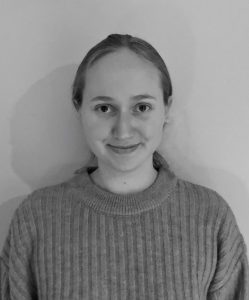
Oddný Ragnarsdóttir
Oddný Ragnarsdóttir is an Early Stage Researcher working at the University of Birmingham, UK.
Oddný Ragnarsdóttir obtained her BSc in Chemistry from the University of Iceland and MSc in Chemistry in Environmental Forensics from Örebro University, Sweden. During her master studies, she researched the interplay of gut microbial metabolites, metabolome and environmental exposure in anoretic women. The main focus of the project was the analysis of PFASs and bile acids in serum samples. Those results were then linked to clinical data and metabolomic results in order to aid in the understanding of the development and persistence of anorexia nervosa. Oddný is interested in metabolomics and the analysis of persistent organic pollutants in order to learn more about human exposure routes and their possible health effects.
Project ESR5: Evaluating the role of the dermal pathway in driving human exposure to PFAS
Host organization: University of Birmingham (UoB)
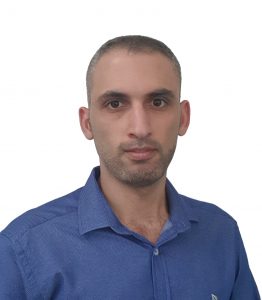
Mohammad Sadia
Mohammad Sadia is an Early Stage Researcher working at the University of Amsterdam, The Netherlands.
I studied a Bachelor of chemistry at Damascus University, Syria, and then started working in the industry (petrochemical and cement industries). I always had a strong concern for preserving nature, whilst interning at human health, and fascinated by the field of environmental chemistry and the fun part of the research, which encouraged me back to study again. I did my master’s degree in Chemistry in Environmental Forensics at Örebro University, Sweden. Then worked within the UNEP group in the Man-Technology-Environment Research Centre (MTM) in Örebro under the global monitoring plan 2 (UNEP/GMP2) project for monitoring the level of selective perfluorinated alkylated substances (PFAS) from 42 developing countries in abiotic (air, soil, sediment) and biotic (food, human milk, blood) samples, and evaluate the effectiveness of the Stockholm Convention.
Project ESR4: Fate and properties of alternative and unknown PFASs in the drinking water cycle and its significance for human exposure
Host organization: University of Amsterdam (UvA)

Faezeh Sadrabadi Haghighi
Faezeh Sadrabadi Haghighi is an Early Stage Researcher working at the German Federal Institute for Risk Assessment, Germany.
I completed my bachelor’s degree in Cellular and Molecular Biology at Kharazmi University, Tehran, Iran and got my master’s degree in Clinical Biochemistry from Mashhad University of Medical Sciences, Mashhad, Iran. Afterwards, I did an internship in a biochemistry group at Ruhr University Bochum, Germany, before joining the German Federal Institute for Risk Assessment and the PERFORCE3 project. I have experience in cellular and molecular techniques and I am interested in continuing my research on the effects of man-made chemicals like PFAS on human metabolism.
Host organization: The German Federal Institute for Risk Assessment (BfR)

Sanne Smith
Sanne Smith is an Early Stage Researcher working at the Swedish University of Agricultural Sciences, Sweden.
Sanne grew up in Amsterdam and obtained a double bachelor in Chemistry and Chemical Engineering at the University of Groningen, the Netherlands. She then transferred to the MSc program in Civil Engineering at the TU Delft, which she completed with a specialization towards water treatment technologies. The research for her master thesis was carried out in collaboration with Afvalzorg, a Dutch waste processing company, and focused on the removal of PFAS from leachate water using electrocoagulation. It consisted of a computational part attempting to model the removal process, combined with laboratory experiments on the bench-scale. She is very excited to continue her research towards PFAS removal as an ESR within the PERFORCE3 framework.
Project ESR11: Innovative treatment techniques for PFASs in stormwater, groundwater, wastewater and landfill leachate
Host organization: Swedish University of Agricultural Sciences (SLU)
Further information: LinkedIn


